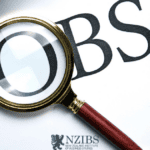Listening is something I’m really passionate about. Throughout my working career I’ve constantly found myself rediscovering the importance of listening. I’ve also noticed how few people do it well.
A Rare Skill
As the ethics manager, basically I was paid to listen. I always knew it was important, but that’s not to say it came easily to me. What I found out was that being listened to meant a lot to people.
As time went by, I found that my colleagues were coming to me to talk about things which were not to do with ethics and ethical behaviour. They really wanted to talk about issues ranging from their careers to handling difficult situations at work. I realised how often in the workplace we are not listened to.
Instead, whenever we need to talk something through, our colleagues or managers feel inclined to solve the problem for us rather than listening and guiding us to solve our problem for ourselves. I’ve been guilty of the same thing. An area I worked hard on was figuring out what were the best questions to ask. I had to learn to give people space.
Not only is it good to be able to listen well – listening can also be great for one’s career.
Hearing versus Listening
Problems in communication are the most frequently cited complaint by couples seeking therapy, with up to 90% of distressed couples citing these difficulties as a major issue in the relationship. The key to successful relationships, both at home and in the workplace, is the art of listening, often confused with ‘hearing what people say’.
Hearing‚ describes the physiological sensory processes by which auditory sensations are received by the ears and transmitted to the brain. Listening refers to a more complex psychological procedure involving interpreting and understanding the significance of the sensory experience. Hearing is the beginning of the listening process. It is non-selective and involuntary; whereas choosing to listen is a purposeful activity.
This means you can hear what another person is saying, and even repeat it word for word without really listening to them. Listening is the ability to interpret the meaning the other person is trying to convey, sometimes regardless of (and occasionally even contrary to) the words used. Listening involves more than just interpreting the meaning of words. It involves interpreting the tone, the body language and, often, interpreting what is not being said.
What makes a good workplace listener?
My definition of a good workplace listener is someone with whom you can have a rigorous exchange of ideas. A good workplace listener is aware of your organisational reality. What distinguishes a great workplace listener from the rest of us is that they have the ability to encourage us to think through complex work related issues and thus help us come up with workable solutions.
The art of attending
To be a good workplace listener, you need to be someone people want to talk to. We all know people who think they are great listeners, but in reality they are very poor at it. One of the most basic things you can do is work on your ability to pay active attention to what is being said. This way you can make people feel they can talk to you and you will listen.
Half of most communication is non-verbal, through our gestures, facial expressions, eyes and posture. Non-verbal communication may emphasise, repeat, substitute for, regulate or contradict accompanying verbal communication.
In one experiment on the importance of non-verbal communication, students who were listened to by an impassive listener rated him as cold and aloof. However, when the same ‘listener‚ moved and made some non-verbal gestures in response to the speaker, the same listener was described as warm, casual, friendly and natural.
The basics of attentive listening
- Make sure you are in the right psychological space to listen. Tell your colleagues who may want to talk to you that you are not in the right space at that particular moment. People respect honesty. However, if you want them to come back and talk with you, then schedule a time when you can have a good conversation.
- When you are in the psychological space to listen, communicate this physically. Lean forward. Be relaxed and alert. Have a posture of involvement.
- Respond to the speaker, not to distractions. Looking at your computer, taking phone calls, or looking at the person walking past your office is not total listening. It is also rude.
- Keep environmental distractions to a minimum. The attentive listener will remove physical barriers to foster better communication and observe body language. This is an important part of listening, which can’t be done well when there’s a desk in the way.
- Maintaining eye contact, even when people show emotion, is one of the most effective listening skills in many societies. Maintaining culturally sensitive eye contact and being aware of emotionally charged environments shows you are interested and helps you notice what is not said.
- Use ‘minimal encouragers’ (such as OK, yes, uh-ha, right, really) to let the speaker know you are interested (or at least still awake), and listening to the flow of what they have to say.
- Summarising what was said. If you find using ‘minimal encouragers‘ a bit contrived, here is a great way to show you are listening and interested. It is also a good way to check you understand the issues at hand. Often, just by hearing your summary of what was said, people can recognise the issue at hand and find the solution for themselves!
The art of questioning
This is really the core skill of a good workplace listener. These people know exactly what the right question is, the question that will get to the heart of any problem. When asked the right questions, many of us find the answers to our issues are painfully obvious.
So how do you go about asking the right questions?
A good way to find great questions is by thinking of yourself as an interviewer who is about to write a story. This way, you really need to focus on the questions that will help you get the ‘juicy bits’.
Ask open ended questions
Use as many open questions as you can think of to find out the facts – What? Who? When? Where? Why? How? One thing I learned the hard way was that no matter how good I thought I was at getting the facts, I often forgot to ask at least one important question.
Find out who is involved or affected by the issue – remember to look beyond the obvious stakeholders such as managers and staff to see others, like shareholders or customers. This can bring out a very different picture.
What has the person already thought of in terms of resolving the issue? Can you help them think of other ways? How might solutions affect the various stakeholders? What are the consequences of the alternatives?
Tolerate silence in the conversation. Give yourself time to reflect on what you’ve heard. ‘The beginning of wisdom is silence – the second stage is listening.’
Paraphrase (concisely; not parrot repeats) – to ensure you understand.
Don’t offer solutions too quickly. This is the big challenge of listening.
Help people solve their own problems for themselves. This way, they are more likely to own the solution and work it.
How good a listener are you?
A little self reflection can go a long way. A quick exercise you can do for yourself is to think of a great listener you know and then to write down what it is about him or her that makes them a great listener. Then, think of a second-rate listener and write down what makes them so ineffective.
You’ve probably guessed it by now. With your list of what distinguishes great listeners from poor ones, you can rate yourself and see which qualities you have, and which you lack.
If you choose to do something about it, you can always focus on improving the key area that needs improving (for example, avoiding giving people solutions…). Come up with one or two strategies to improve that aspect of your listening. After awhile, ask a close colleague to give you feedback. It’s a simple technique, but it works!
Consider the benefits of being a good workplace listener
- You build relationships. Everyone likes to be listened to. It’s a powerful way to show respect. When people feel you respect them, they are more likely to see you as an ally.
- You will learn about your company or business or club. If you ask the right questions and listen, you’ll be surprised what you’ll learn.
- You will become known as a constructive problem solver. When they’re being listened to, and asked the right questions, people often find the answers for themselves. This way, your colleagues will be more likely to ‘own’ their solution and be more likely to act on it.
- You will set a good workplace example. This never hurts!
- All of these things will result in you being seen as trustworthy. It will increase your sphere of informal influence – the influence you have which is not related to your actual position.
By Galia BarHava-Monteith. Reproduced for Educational Purposes.










